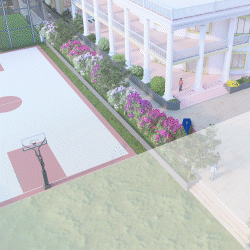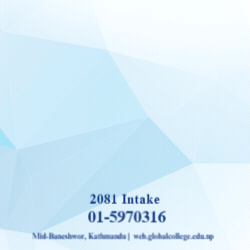Love needs opportunity
We use Google Cloud Translation Services. Google requires we provide the following disclaimer relating to use of this service:
This service may contain translations powered by Google. Google disclaims all warranties related to the translations, expressed or implied, including any warranties of accuracy, reliability, and any implied warranties of merchantability, fitness for a particular purpose, and noninfringement.


There is still a pessimistic view of what people with intellectual disabilities can do in society. But Pritam Vick, 23 years old from Bhaisainpati, has become an example that if given an opportunity with the help and support of his family, they can also stand on their own feet. He has been working as a housekeeper and waiter in the 'Sekuwa Bagan' restaurant in Bhaisainpati for the past two years.


Initially, he was hired for a trial period of three months and after being impressed by his passion for work, he was kept permanently. Being a restaurant near home has made it easier for him. He works in that restaurant from 12 noon to 8 pm.
'In the first days it was difficult to get to work and soak in the environment', he said, 'but it didn't take long . I got mixed up quickly.' He has a loving nature and gets more tips than others. Mother Dhankumari Sunar tells us that in the early days, she was tormented by the fear that her son would not be able to do anything and felt bad when she saw her son's condition. But now he is proud of his son.
'Being intellectually disabled has been a bitter experience . In the beginning, I thought life was over because the child became like this', mother Dhankumari said, 'As I gradually understood, I understood his needs . I have made a big struggle to get here . It makes me happy to see that my son is so capable now.'
Sunar Most people think that children with intellectual disabilities cannot do anything and do not understand what is taught. But it is his experience that that understanding is wrong. Such people need love, respect and opportunities. We have to arrange that arrangement', she says, 'If given the right guidance and opportunity, they can show their talent . The state is trying to be sensitive about this matter, but policy-wise, it is still necessary to understand their needs and create such programs.'
25-year-old Helena Shrestha from Pekhra has the same problem as Vic. She is good at dancing and starts dancing as soon as she hears the song. Not only that, he is also interested in reading and writing. Mother Juliana Shrestha shared her experience that children with intellectual disabilities need love and affection. 'Many parents try to hide the fact that their child is suffering from such problems . But you have to take your children everywhere you go. They get a chance to learn many things,' she said.
She said that many people do not want to teach children with intellectual disabilities because they think that they cannot do these things. "They can't learn as fast as other children, but they can't learn at all." My daughter can enjoy cutting vegetables, washing clothes, cooking herself,' she said.
Kavita Thapa from Kathmandu came to know that she has intellectual disability one month after the birth of her daughter . Although she was upset at the beginning, she did not neglect her daughter's upbringing. 17-year-old daughter Shrijan Rai now loves to dance. Thapa said, 'We treated our daughter like a normal child. If everyone behaves like that, they can grow up in a good environment . I will take it with me wherever I go. I am happy as it is.'
In the beginning, the daughter had abnormal tongue sticking out symptoms. 'Even though she was the youngest daughter, she probably got a lot of love from her family. Being brought up in an educated environment, any kind of There was no discrimination', Thapa said, 'At one place, her eyes were dancing with joy when she saw her daughter's performance. We never realized that he was different.' He says that if his daughter teaches him, he can do everything .
Similarly, 41-year-old Sangam Upreti, who is dealing with intellectual disability, has been working at Bhatbhateni supermarket for the past 20 years. He They say that people with intellectual disabilities need love and respect.
People like Pritam, Sangam and Luja are examples of people with intellectual disabilities who can become independent if given the opportunity. But there is still a situation in the society where people suffering from "Down syndrome" should be deprived of education, health, employment, participation in social work compared to other people.
Sheila Thapa, the president of Down Syndrome Society Nepal, says that traditional stereotypes should be removed on this matter. She says, 'That thinking is prevalent in the society about what people with intellectual disabilities can do. They cannot give a chance. We are lazy to work hard but they don't hesitate . There is also a situation where many have shown themselves to be independent.'
She said that such children need special care and education and many parents would benefit if they could provide such training and counseling. Down Syndrome Society Nepal is expanding its network in Kailali, Pokhara and Chitwan apart from Kathmandu and is spreading public awareness and lobbying.
She says, 'special manpower is needed to teach those children . Services can be provided through occupational therapists, sound therapists, but such manpower is less. In this case, state investment is necessary. There is a need for infrastructure.'
Down syndrome is a condition within intellectual disability. Pediatrician Dr. Rita Singh says that Down syndrome is a congenital problem. She says, 'It is not a disease . This is a situation . Down syndrome is not a disease it is just a condition. A child is born with this problem in the womb. It cannot be cured but the condition of children with this problem can be improved.'
In children with this condition, symptoms such as low birth weight, loose joints, loose muscles, round face, small nose and no nose, small mouth, short height, short neck and fat may appear. ;.
Before the baby is born, it is possible to identify whether Down syndrome is affected or not by testing the condition of the baby in the womb through various tests.
dr. Singh says, 'Some may see less problems while others may see a little more . The growth and development of those children is a little slower than other children . They will be weak in reading and writing. But these kids are funny. Loves music . They dance as soon as they hear the song.'
According to the Disability Rights Act 2074, intellectual disability is one of the 10 types of disabilities. In which Down syndrome is one of the disabilities.
According to a recent study, symptoms of Down syndrome have appeared in every one thousand and one children in the world. According to the National Census, 2078, 2.2 percent of the total population has different types of disabilities, and the number of people with intellectual disabilities is 1.8 percent (11 thousand 358) are . Out of which the number of men is five thousand eight hundred and sixty-nine (51.67 percent) and the number of women is five thousand four hundred and sixty-nine (48 decimal 33 percent).
 प्रकाशित : चैत्र ९, २०८० १४:५२
प्रकाशित : चैत्र ९, २०८० १४:५२

 २३.१२°C काठमाडौं
२३.१२°C काठमाडौं


















